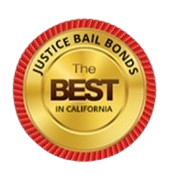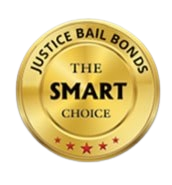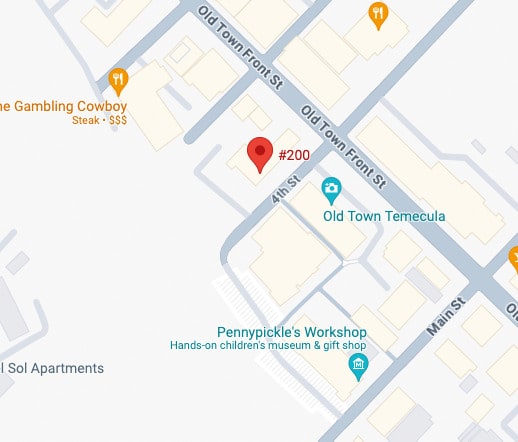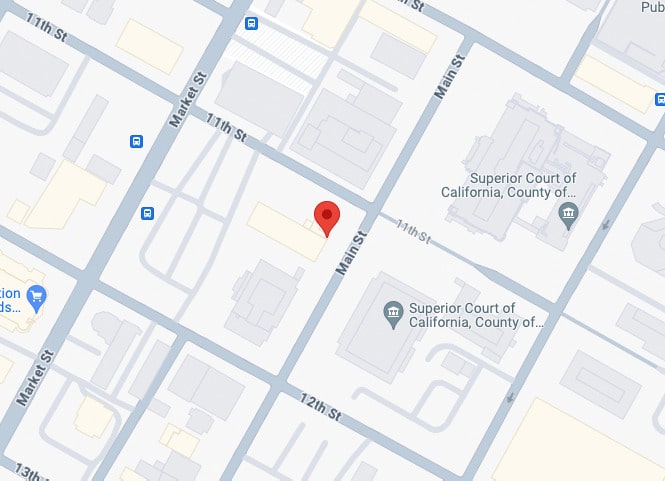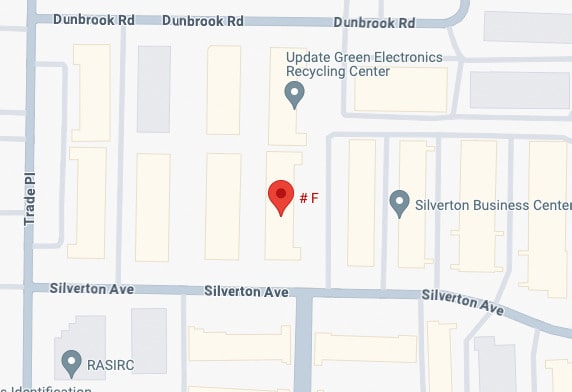When someone is arrested, securing bail quickly becomes a top priority. Bail simply means being released from custody until the trial begins, which helps you prepare for your case, carry on with work, and stay with family. Most individuals require assistance from bail bond services to secure their release from custody. The factors judges consider while setting bail are rarely considered while doing so.
Judges determine bail and exercise discretion in determining the appropriate bail. They consider the accused's rights and the community's safety. This decision directly impacts the accused's ability to prepare for his/her defense and navigate the legal system from a position of freedom. Knowing how the judges decide on the bail amounts is very important because it can give you some understanding of the whole judicial system and how best to approach your case.
What is Bail?
Before analyzing the factors that the judges consider while setting bail, we need to understand what bail is. Bail is the amount set or some other security for your release from custody. The bail sum is used as a guarantee that you will attend your court dates and honor the terms of your release.
During a bail hearing, the judge will decide one of three things, namely, whether to:
- Release you without bail — Depending on the seriousness of the charges, your past behavior, or if the charges are minor, the judge could set you free without demanding bail. This is referred to as a release on your own recognizance.
- Release you on bail — The judge could set a cash amount, and you may be released if a loved one or a bail bond company pays the amount. This amount ensures that you can be produced in court when needed.
- Deny you bail — The judge could deny you bail if he/she believes you are a danger to the public or are likely to re-offend. In this case, you will remain in custody till your trial.
Factors that Affect Bail Decisions
Some of the considerations that are taken into account when determining bail include the following:
-
The Severity of the Charges
In setting the bail, the judge always looks at the charges preferred against the suspect. For minor offenses, the judge could decide to release you without paying any amount or a smaller amount. This decision is likely if you do not pose any significant risk to public safety. This enables you to continue your everyday life while waiting for trial. On the other hand, if you are charged with serious crimes that may include violence or any other harm that could endanger the lives of other people, the judge could consider setting a higher amount of bail because of the high risk you pose to public safety.
In some circumstances, the judge could refuse bail, especially for serious offenses or those considered highly likely to commit other crimes. These decisions occur when the judge finds no appropriate bail amount.
Though bail schedules offer standard amounts for various offenses, judges can adjust these figures based on the specifics of your case. When judges set high bail sums for serious crimes, they view the bail as reflecting the severity of the offense and consider you a significant risk to public safety. High bail ensures you remain in custody until the end of your trial.
If the judge denies you bail, they consider you a serious threat to society or believe you would re-offend. This decision means that no amount of bail would sufficiently reduce the risks of releasing you.
Should the judge grant bail, the terms of your release will likely be stringent. They will reflect the seriousness of the charges and the perceived risk. The judge might impose strict conditions or monitoring to ensure you comply and minimize potential community threats.
-
Your Criminal Past
When setting bail, the judges consider your criminal standing to establish the risk you pose to the community and your chances of reoffending. They study your previous arrests and convictions and pay particular attention to any prior violent offenses. This can mean higher or no bail, as it suggests you are a community risk.
Criminal history also covers patterns in your criminal behavior as well. If you have a record of often coming into contact with the law or committing similar offenses, then the judge could set a higher amount of bail or even place stricter bail conditions. These patterns suggest the likelihood of reoffending.
The severity of your past crimes influences the judge’s decision as well. If you were involved in violent or high-risk crimes before, the judge could consider you a serious threat to the community. This perception can lead to harsher bail sums or even denial of bail. Judges also look at the connection between the crimes you are charged with presently and your record. The criminal similarity between the current and earlier offenses could influence the judge’s perception of your risk.
When setting bail, the judges will look at your record to determine if you failed to attend the court dates as required in your past cases. If you have missed court dates, they will deem this a sign that you will not honor future hearings either. It can make judges set a higher bail amount or even put stricter conditions on the bail.
Higher bail also ensures that you are present during all scheduled hearings. Judges may add other conditions you should adhere to to remain out of jail, including:
- Reporting to a bail officer
- Wearing an electronic monitoring device, or
- Restricted movement.
If your history of failing to show up raises concerns, the judge could deny you bail.
-
Your Financial Capacity
When judges set bail, they evaluate your financial situation to gauge your ability to pay and assess the risk of fleeing. Your financial situation allows them to decide whether you can pay for the bail amount or whether you will try to flee once released. For example, the judge could lower the bail amount if your finances are limited. On the other hand, if you own significant assets, the judge may set stringent conditions and a higher bail amount because of your potential to flee.
While this may sound rather unjust, judges use their discretion to balance securing your court appearance with public safety concerns. They can raise or lower the bail other than what the schedule provides for, and they do this based on the specifics of your case.
You can use the judge’s discretion to your advantage by understanding past trends in bail decisions. Past decisions show that judges tend to set lower bail for those with public defenders than those with private lawyers. This may happen because once you hire a private attorney, you have the financial means and can afford bail. This does not necessarily mean you forgo the best representation. An experienced personal attorney can leverage this situation to your advantage. He/she will present a compelling argument before the judge as to why you should not be detained for failure to meet your court responsibilities and why you are not a flight risk. Your attorney will highlight matters such as:
- Being a responsible member of the community
- Having a steady source of income or
- No prior history of failing to honor court dates or being a threat to the community
Personal attorneys tailor their arguments to the judge’s preferences and past decisions. They leverage their knowledge of judicial tendencies and legal precedents to push for a bail reduction.
-
Being a Flight Risk
When judges perceive you as a potential flight risk, they often impose a high bail to deter any attempt to flee before your court date. Remember, bail guarantees that you will attend all your court hearings. If the court believes you have the incentive or ability to flee, it could increase the bail amount. There is a need to balance protecting your constitutional right of being free until the trial and meeting the court’s interest in having you present throughout the legal proceedings.
In addition to setting a high bail, judges could add conditions to minimize the risk of fleeing. For example:
- They may demand that you hand over your passport so you cannot travel abroad.
- They might also limit your movement to a particular geographic area, like your home state or city, to further reduce the likelihood of your disappearing.
- In some cases, judges may allow you to move around with an electronic monitor or even be placed on house arrest to ensure you do not violate any set bail conditions.
However, being labeled a flight risk does not automatically lead to a high bail. Judges carefully consider various factors, which can sometimes work in your favor. Judges consider several factors, and at times, these are in your favor. This means that when you have ties within the community, like having family or a stable job or residence, the court will probably see that you are not a flight risk. These connections could lead to a lower bail amount, as they suggest that you are likely to comply with the terms of your release and attend all court hearings since you have an incentive to stay.
Another factor may also be your history's lack of a criminal record. Specifically, if you have no other criminal record and appear in court only when needed, the judge could consider this evidence of your reliability and respect for the legal process. This could result in a low bail amount, which shows that the judge believes you will appear in court when required.
Judges also consider your behavior in court, your cooperation with law enforcement, and the support you receive from family and friends. All these components give a broad perspective of your character and the probability of compliance with court orders.
The main concern is always the risk of flight. However, judges make efforts to set bail that is reasonable depending on the circumstances surrounding the case to prevent flight while at the same time not being very harsh.
-
Public Safety
Public safety is a significant factor when a judge decides on a bail amount. Judges consider whether you will honor the court appearance and the danger you pose to the community if released.
In cases where you are charged with violent crimes like assault or armed robbery, then judges tend to set high bail or even deny bail. They aim to avoid any possible danger you may pose if you are let out. The rationale is that sometimes a person accused of violent action may be dangerous to others in the community.
Another factor that judges consider is your criminal record. If you have had previous incidents involving violence or threats, they may place more stringent conditions on your release or even set a higher bail bond. This precaution assists in dealing with any worries about additional risks to the general public's safety. In non-violent offenses, like embezzlement, there are still safety concerns. Judges may worry about the possibility of you engaging in more fraudulent activities. This can result in higher bail or other terms to address the risk.
For this reason, judges might impose specific release conditions to enhance the public’s safety. These can be through:
- Restraining orders to stay away from a particular person or place
- Limitations on the use of substances, or
- Even having to wear an electronic anklet
These measures are designed to protect the community while allowing you to remain free before trial.
-
History of Mental Illness and Substance Abuse
When setting bail, the judges are very keen on your records of mental disorders and substance use. These factors play a significant role in their decision-making process. If you have severe mental health issues or a history of substance abuse, the judge may be concerned about your ability to follow bail conditions and the risks you might pose to yourself or others.
If you have severe psychological disorders, the judge could have concerns as to how you will behave if released and whether or not you will harm yourself or others. This concern can lead to a higher bail amount or stricter conditions to protect you and others in the community.
Likewise, the history of substance abuse will also influence the judge’s decision. If your substance abuse is serious or continuous, the judge could be worried about your chance of relapsing or getting involved in criminal activities again. Consequently, the judge could increase the bail amount or add new terms to minimize these risks.
The judge could prescribe specific conditions like counseling or drug and alcohol rehabilitation. It could also require frequent follow-ups with the healthcare providers to guarantee that you are compliant with the prescribed treatment plan. Sometimes, the judge might set additional conditions like electronic monitoring or any other method that will enable him/her to monitor whether you are observing the bailing conditions and ensuring public safety.
-
You Were on Parole, Waiting for an Appeal, or Out on Bail
When deciding on bail, the judges are very keen on your current situation and your behavior in the past. If you are on parole, the judge considers whether or not you follow the parole terms. Violations can signal a higher risk of failing to comply with bail terms. This could prompt the judge to set a higher bail amount or impose stricter conditions to ensure your compliance and public safety.
Likewise, if you have another case in which you are appealing a prior conviction, the judge looks at how this other case may impact your current risk level. Any case that has yet to be dismissed or if the charges are severe can make the judge doubt your conduct. These risks could cause the judge to increase the bail amount or impose new strict bail terms.
If you commit a new crime while on bail, your behavior heavily influences the judge’s decision. Recidivism involves engaging in a new crime. This portrays a disregard for legal requirements and raises concerns about your capacity to engage in criminal activities again. The judge could counter this by increasing the bail amount or denying bail to avoid further crime.
Find a Bail Bondsman Near Me
As you can see, several key factors determine how judges set bail. All these factors help them decide whether you are eligible for bail and, if so, the amount to set. The goal is to balance your right to be free before trial with the community’s interests and need for compliance with court orders. Understanding these factors is crucial if you or your loved one is set to face a bail hearing. The process can be challenging, especially when the charges are grave or there is a history that can influence the judge’s decision. Seeking professional help makes a significant difference.
If you need assistance with bail bonds, contact Justice Bail Bonds. Our Temecula bail bond agents will guide you during the bail hearing and help you explore your options. We will work with you to secure a bond that suits your needs as an alternative to you paying the entire bail. Talk to us today at 714-541-1155 and get the support you need during this challenging time.





